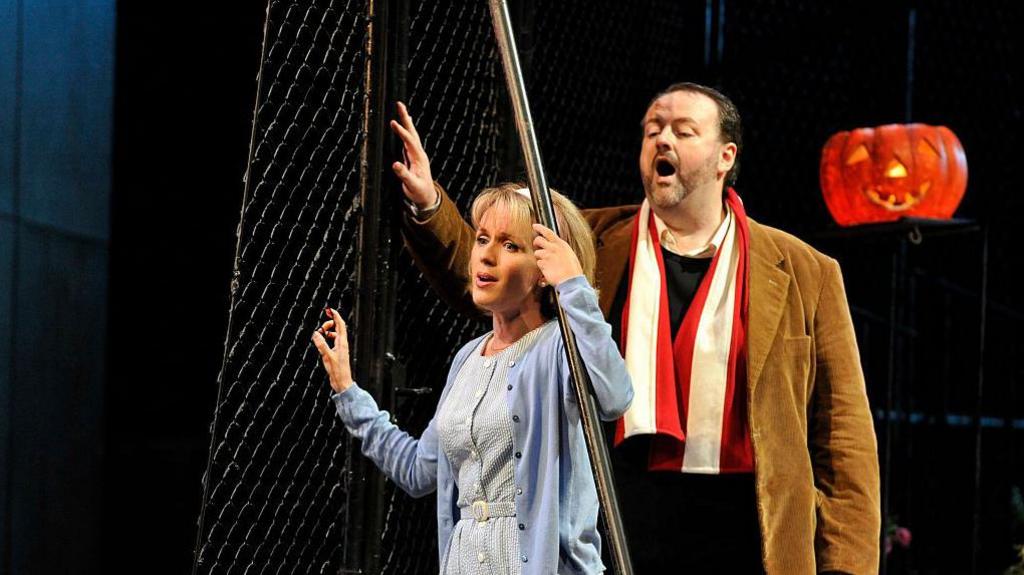Welsh National Opera faces disruption over pay

Musicians will leaflet the audience on their way in to a performance "Rigoletto"
- Published
Musicians in the Welsh National Opera (WNO) will take industrial action later this month over proposed pay cuts.
The Musicians' Union will be taking action short of strike on 21 September.
They will leaflet the audience on their way in to the opening night performance of the opera's production of Rigoletto and wear campaign t-shirts instead of their usual concert dress for the performance.
The action comes after funding cuts, which have forced WNO management to consider making the orchestra part time and cut musicians' pay by 15%.
Opera singer turns to care work as hundreds protest
- Published21 May 2024
Welsh National Opera drops shows over funding cuts
- Published16 April 2024
Welsh should stand up to attack on culture - Sheen
- Published18 May 2024
The musicians will be calling on management, Arts Council of Wales and Arts Council England to keep WNO as a full-time company and stop the proposed 15% pay cut, the Musicians Union said.
They also want management to agree a sustainable funding package to secure WNO's future including touring.
WNO announced in April that it was cutting back its spring tour in 2025 and would not be performing in Llandudno or Bristol.
"There are very few opportunities to see live opera in Wales and south west England and the WNO management's proposals will mean some areas have no provision at all," the Musicians' Union said in a statement.
"Alongside the proposed closure of the Welsh College of Music and Drama's junior department, and the ongoing closure of St David's Hall, musical activity in Wales has seriously diminished," it added.

The Welsh National Opera staged a production of La Traviata in 2023
Both the Arts Council of Wales and Arts Council England have cut the amount of money they give to WNO by 11.8% and 35% respectively.
Musicians' Union National Organiser for Orchestras, Jo Laverty, said: "We simply do not accept yet another opera orchestra being forced into part-time, less secure employment due to bad decisions from managements and what feels like an attack on the profession from funders.
"These are highly skilled jobs but they are not paid as such," she said, adding that taking members' salaries "back to where they were five years ago" meant members were facing really tough financial decisions.
Related topics
- Published6 May 2024

- Published14 April 2024

- Published5 September 2024
